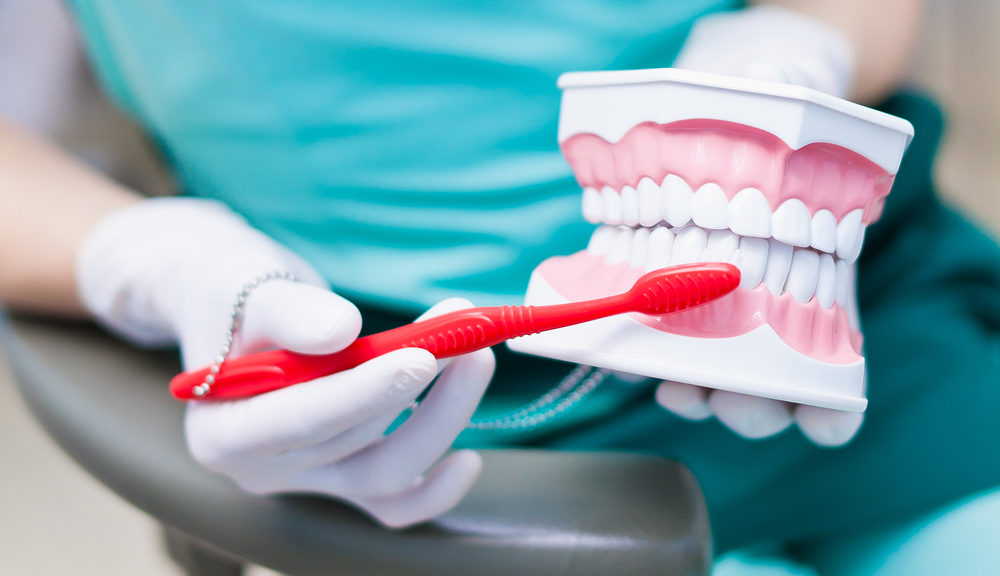Table Of Contents
Making the decision to get dental implants is a big one, and likely something you’ve put a lot of thought into. Good on you for taking that step towards a healthier, more confident smile! These aren’t just replacement teeth; they’re sophisticated pieces of dental work – tiny titanium posts that act like artificial roots, creating an incredibly solid base for new teeth that look and feel remarkably natural.
Now, having the dental implants in Melbourne placed by your dental surgeon is a skillful procedure, no doubt about it. But the success story doesn’t end there. How you look after your implant, especially in the weeks and months following the procedure, really makes a difference to how well it settles in for the long run. It’s a bit like teamwork between you, your body, and your dental team. Giving your dental implants near me the right conditions helps it fuse securely with your jawbone – a natural process we call osseointegration – and keeps the gums around it healthy. Let’s go over the main things you can do.
The First Few Days: Handling with Care
That initial period post-surgery is all about gentle healing. Expect some tenderness or slight swelling – that’s quite normal.
Eating and Drinking Gently: Start with cool liquids (water, juices, shakes) for the first day or two. As you feel up to it, transition to very soft foods needing minimal chewing (yoghurt, mashed veggies, scrambled eggs, soft fish). Avoid anything hot, spicy, crunchy, sticky, or very chewy for the first week. Importantly, do not use straws, as the suction can disturb the healing site. Stay well hydrated with plenty of water.
Keeping Your Mouth Clean (Carefully!): On day one, avoid rinsing or brushing near the site to protect the healing clot. From day two, gently brush your other teeth, being extra careful around the implant area. You can start gentle warm salt-water rinses (1/2 tsp salt in a cup of water) after meals. Avoid vigorous rinsing and hold off on water flossers for about 12 weeks.
Taking It Easy: Rest is important. Plan for a quiet day after surgery, keeping your head elevated. Avoid strenuous exercise or heavy lifting for at least a week. Critically, avoid smoking, as it severely hinders healing and increases implant risks. It’s also wise to skip alcohol for at least a few days to support the healing process.
Eating for the Long Haul: Fuelling Success
Once your teeth implants cost in Melbourne has fully integrated (usually 3-6 months), you can enjoy most foods again. A balanced diet rich in nutrients like Calcium, Vitamin D, Vitamin C, and protein supports the long-term health of the bone and gums around your implant. While dental implants near me prices are strong, it’s still sensible to be mindful of very hard foods (like ice or hard lollies), sticky items that are hard to clean, and excessive sugary or acidic foods that can affect overall oral health. Drinking plenty of water is always beneficial.

Your Daily Cleaning Routine: Protecting Your Investment
Excellent oral hygiene is key to preventing issues like peri-implantitis (gum inflammation around the implant). This means:
- Brushing: At least twice daily for two minutes with a soft-bristled brush and low-abrasive toothpaste, paying attention to the gum line.
- Cleaning Between: Daily cleaning around the implant abutment is vital. Use implant-specific floss, a water flosser, or interdental brushes as recommended by your dentist.
- Regular Dental Visits: Professional check-ups and cleans (usually every six months) are non-negotiable. Your dental team can clean thoroughly and spot early signs of trouble.
Habits That Can Harm Your Implants
Protect your investment by avoiding habits that put undue stress on dental implants near me affordable:
- Smoking: A major factor in implant failure. Quitting is highly recommended.
- Excessive Alcohol: Can impede healing and overall health. Moderation is advised.
- Teeth Grinding (Bruxism): Creates excessive force. A night guard is often recommended if you grind your teeth.
- Chewing Hard Objects: Avoid using implants (or teeth!) on non-food items like ice, pens, or packaging.
Staying on Track: The Importance of Follow-Ups
Regular follow-up appointments allow your dentist to monitor healing, check the implant’s integration with your jawbone (often using x-rays), and catch any potential complications early. Even after years, these check-ups are essential for assessing the health of the implant, crown, and surrounding tissues.

Looking Ahead: Enjoying Your Smile for Years
Full mouth dental implants in Melbourne are built to last, potentially 15-25 years or even a lifetime with good care. The crown might need replacement due to wear after 10-15 years, but the implant post itself is designed for durability.
Making these adjustments becomes routine over time. By looking after your implant and working with your dental team, you’re setting yourself up for many years of smiling, eating, and speaking with confidence.
Frequently Asked Questions
- How long does it take to recover from dental implant surgery?
Initial healing, where tenderness and swelling subside, usually takes a few days to a week. However, the full process of the implant fusing with the jawbone (osseointegration) typically takes around 3 to 6 months before the final crown is attached.
- Can I eat normally with dental implants once they’ve healed?
Yes, one of the main benefits is that once fully healed and integrated, you can generally eat almost anything you could with natural teeth. It’s still wise to be cautious with extremely hard items like ice or hard lollies to protect the crown.
- Do dental implants require special cleaning?
They require excellent, consistent cleaning, similar to natural teeth, but perhaps with slightly different tools. Daily brushing (twice a day) with a soft brush and daily cleaning between the implant and other teeth using implant floss, interdental brushes, or a water flosser is vital. Regular professional cleans are also essential.
- What happens if I smoke after getting dental implants?
Smoking significantly increases the risk of complications and implant failure. It restricts blood flow needed for healing, slows down the integration process with the bone, and makes infections more likely. Quitting smoking is strongly advised for the long-term health of your implants.
- How long do dental implants usually last?
With proper care and regular dental check-ups, dental implants can last a very long time – often 15 to 25 years, and potentially even a lifetime. The crown attached to the implant might need replacement due to wear and tear roughly every 10-15 years.

